17 Sep Hibiscus tea: a flower with roots around the world
Hibiscus flower is a tart, sweet, bright red tisane with zero calories, zero caffeine and lots of benefits. It seems to effortlessly blend with any secondary ingredient and is the perfect bed fellow for other herbal teas. There are approximately 300 species of hibiscus of which the most flavourful tend to grow in hot dry countries around the world with colours ranging across the culture spectrum including pink, red, peach, yellow and purple.
Latin: Malcaceae
Wanting to try hibiscus tea yourself? Well you are in luck! Try our loose-leaf hibiscus tea and let us know your thoughts!
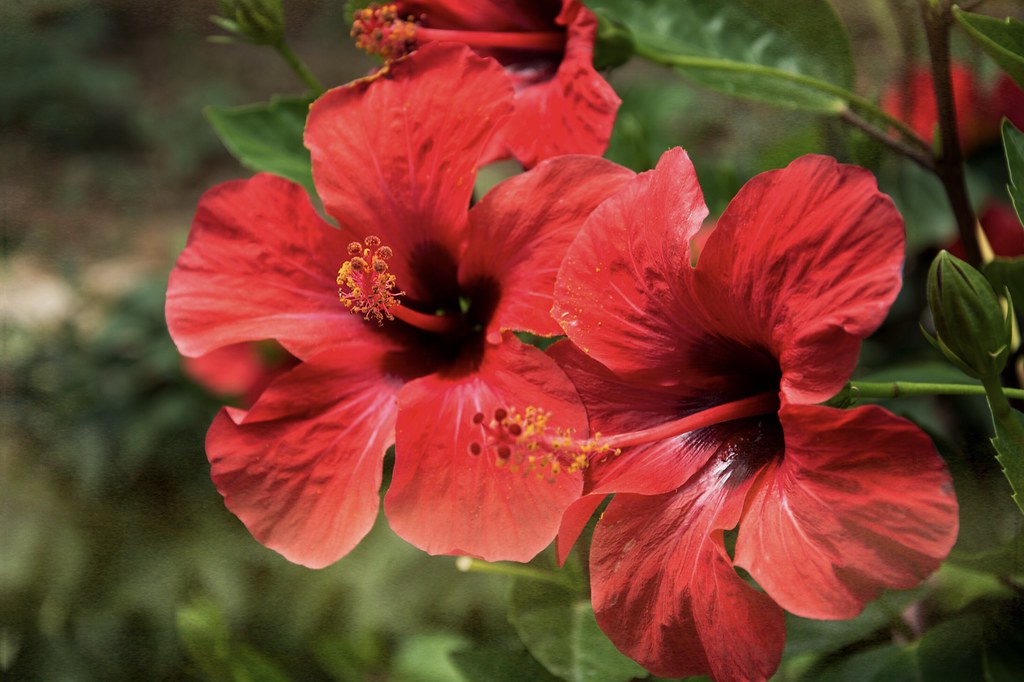
Hibiscus around the world
Nigeria
Zobo is the Yoruban word for Hibiscus. Yoruban is an Ethnicity in Nigeria that accounts for 35% of the population although sometimes it is called roselle.

Jamaica
In Jamaica it is known as Sorrel or Red Sorrel and is described as “liquid soul”. The traditional Red Sorrel drink is often made with Hibiscus flowers, cinnamon, all spice and fresh ginger. You can check out a lovely Jamaican Red Sorrel recipe on Global Travel Adventure blog.
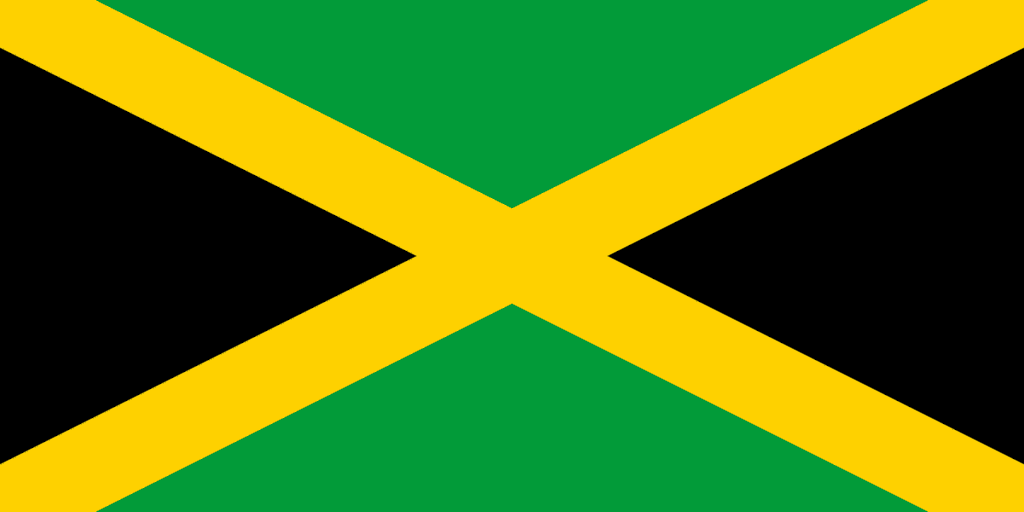
Mexico
In Mexico hibiscus flower is known as flor de jamaica. Hence the traditional drink made with hibiscus is called Agua de Jamaica and is served in Mexico in between meals. It’s served iced and is usually very sweet, tart, delicious and incredibly refreshing. We found a lovely recipe on Mexican Food Journal in case you’d like to give it a try!
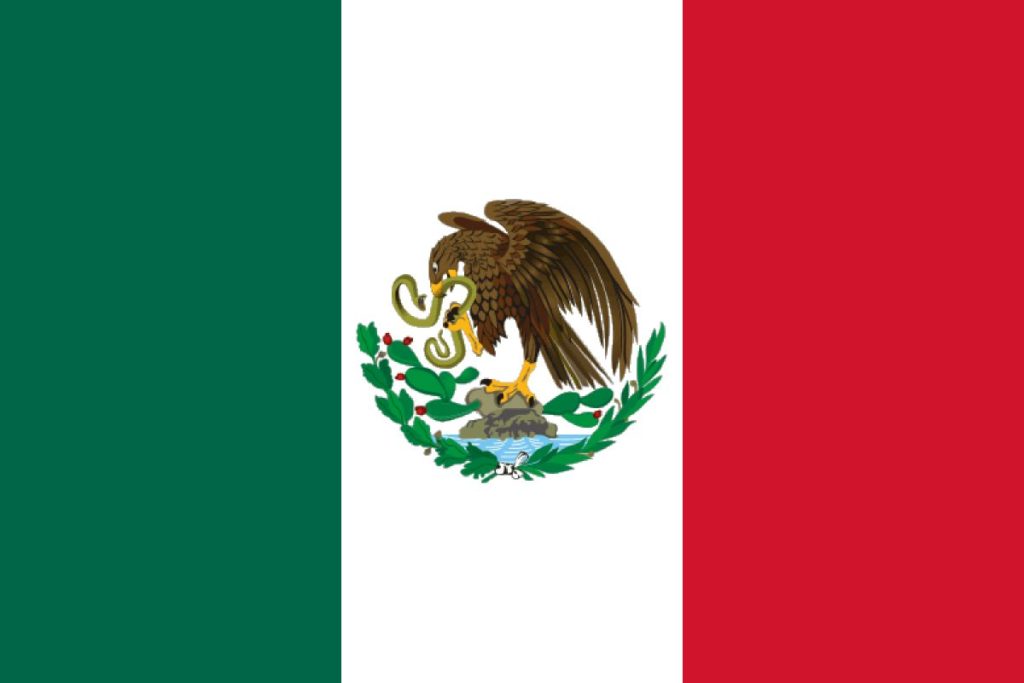
Sudan and Egypt
Hibsicus is known as Karkade in and Egypt, Sudan and Bisap in West Africa. Iced sweetened Karkade tea has been around for centuries and was thought to be popular with the ancient Egyptian Pharaohs. It’s the perfect drink to cool you down in the boiling heat of Egyptian summer.

Malaysia and Senegal
In 1960 Malaysia has chosen Hibiscus to be their national flower. In Malaysia and Singapore it is called “bunga raya” translated as large flower. The red petals symbolise courage, and the five petals represent the Rukun Negara (National Principles).
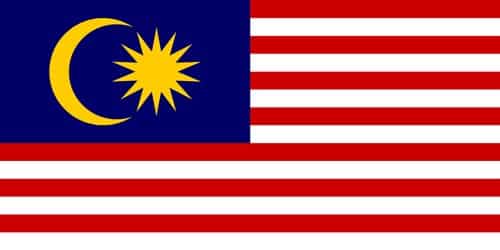
Burma and the Philippines
It is common for the Hibiscus leaves to be used as an ingredient in cooking curries and stews. In the Phillipines it is known as “Guatemala tea”.
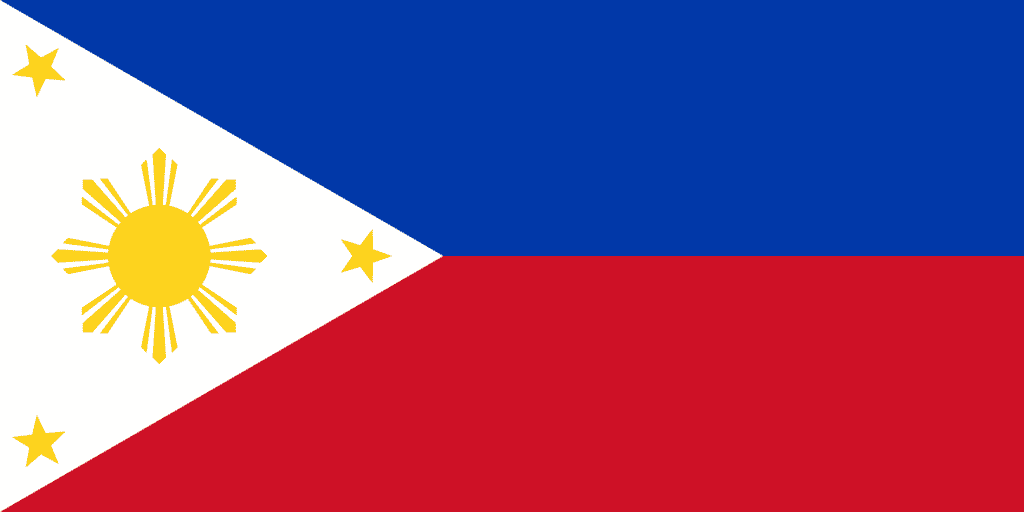
India
In Hinduism, Kali, the Hindu Godess is represented by red hibiscus flower and are used during worship. The hibiscus represents Kali’s tongue and is a manifestation of primordial energy. She represents empowerment, and with that, admittedly, comes destruction, making her a fierce goddess.
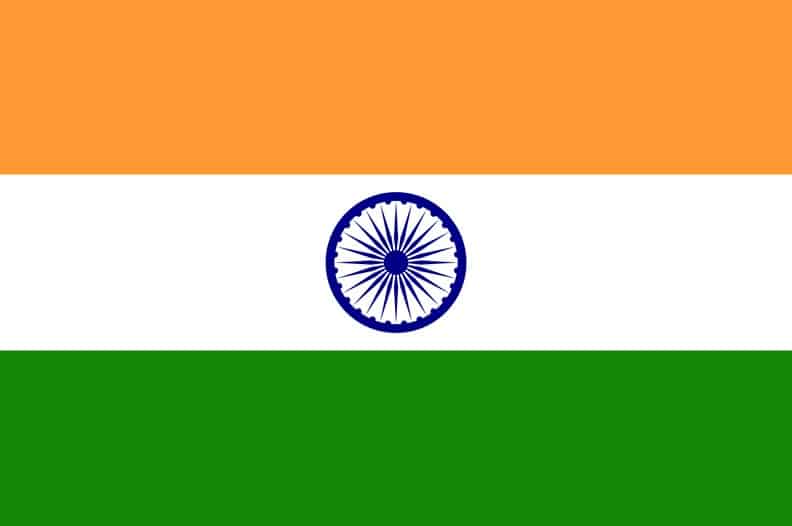
Hawaii
Hawaii’s state flower is their native Hibiscus plant. It is traditionally placed behind the right ear of women who are seeking a partner, with the left indicating she is not available. Just so I am clear, the right ear (her right ear)…either way it is probably best to ask.
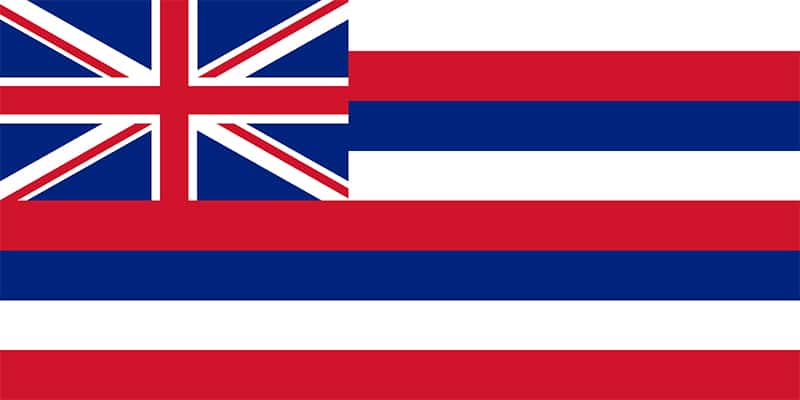
Hibiscus Tea use in Herbalism
Weight Loss
Hibiscus tea has been demonstrated in studies to lower the bodies absorption of starch and glucose, components attributed with weight gain. Hibiscus also inhibits amylase production which are responsible for absorption of starch and carbohydrates. It also has been shown to regularise urination and bowel movements alongside easing constipation. Many people drink hibiscus tea to improve digestion as it regularizes both urination and bowel movements. Hibiscus tea is also very satiating and a lot of sports people drink Hibiscus iced to cool the body down quickly.
Does this interest you? Discover the best teas for weight loss!
Blood Pressure
Hypertension is a state of high blood pressure and in 2008, the American Heart Association found that Hibiscus tea reduced blood pressure in adults with hypertension. Hibiscus was later found to have antihypertensive and cardioprotective properties and is therefore good for reducing the risk of heart disease.
Lower Cholesterol
LDL is the cholesterol that is colloquially called “bad cholesterol”. Hibiscus lowers LDL due to having hypolipidemic properties which in turn protect against heart and blood vessel damage. Hibiscus also has hypoglycemic properties which can help in regulating blood sugar in type 2 diabetes sufferers. The effect of Hibiscus on diabetes sufferers was to reduce cholesterol, triglycerides and reduce low-density lipoprotein cholesterol density and increase good high-density lipoprotein cholesterol.
Immune Booster
Hibiscus is high in Vitamin C and stimulates activity in the immune system. Hibiscus is also anti-inflammatory, antibacterial and a diuretic and so helps ease discomfort from fevers due and protects against colds and flu.
Healthy Liver
Hibiscus has antioxidants that protect the body from disease, neutralising free radicals in the body’s cells and reducing inflammation due to it’s anti-inflammatory properties. As a diuretic it also increases urination.
Anti-cancer
Whilst we would not expect to be your port of call for advice on how to treat cancer, there are studies espousing the protacatechuic acid in hibiscus tea as being an anti-tumor and anti-oxidant. The Department and Institute of Biochemistry at the Chung Shan Medical and Dental College in Taiwan showed that hibiscus could slow down the growth of cancerous cells, specifically leukemia cells in Humans by boosting something called apoptosis, also known as inducing cell death as part of normal organism growth. In other studies it has been shown to be effective in slowing down bowel cancer.
Menstrual Pain
Hibiscus tea helps relieve cramps and menstrual pain and also assist in balancing the body’s hormones that can cause depression, overeating or mood swings.
Another great tea for menstrual tea is rose bud tea! Additionally, rose tea is known to have a calming effect, which can help alleviate mood swings, anxiety, and stress often associated with menstruation.
Antidepressant
The flavonoids in Hibiscus known as Anthocyanadins have been shown to stimulate dopamine, noradrenalin and serotonin production in the brain which in turn acts to reduce anxiety and depression in animal studies.
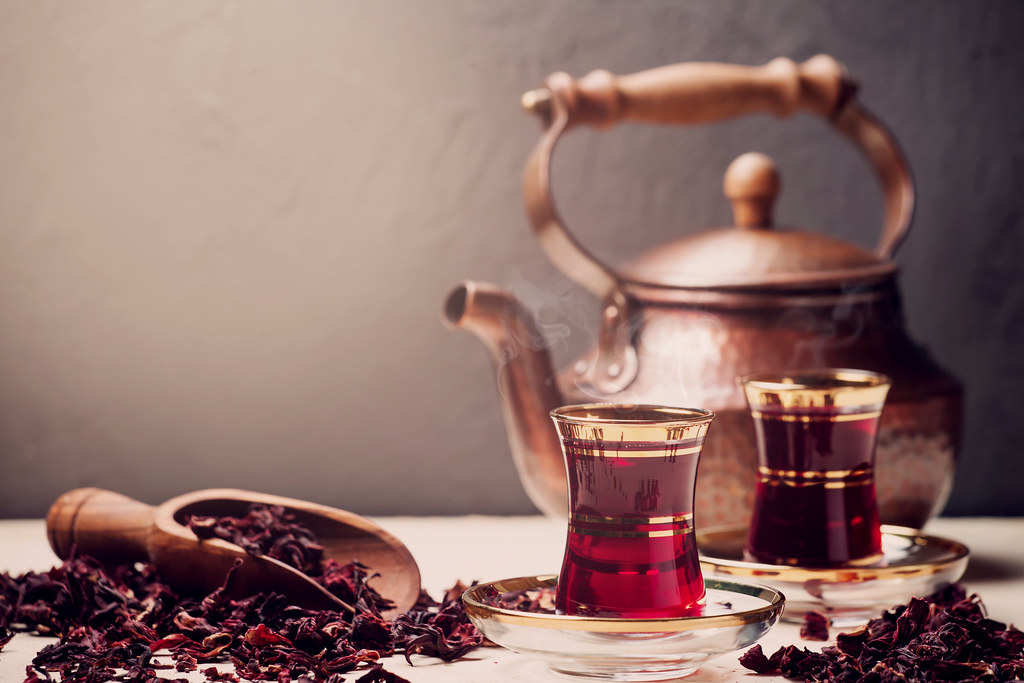
How to Brew Hibiscus Tea
Drink by itself for a delicious, sweet, bitter palate quencher, as a blend or Iced.
Begin by pouring boiling water onto the Hibiscus plant.
Leave for 1 minutes and check to see if you are happy. If not leave for another minute. If you are Icing the tea we recommend brewing for 10-15mins.
Add Honey to balance the sourness but try to avoid refined sugars as it will damage the components in the tea
Herbalism Box
If you’d like to try some high quality Hibiscus tea, check out our teapro Herbalism box!
What did we experience?
Hibiscus is sharp and cleansing but also distinctly sweet. There are strong floral aromas but you will remember the zesty finish this flower packs. It will improve or pair superbly with all manner of different herbs and we strongly recommend trying alongside Elderflower, Damiana and Greek High Mountain tea.
Some Precautions
Please be careful if you are planning surgery or have Diabetes as Hibiscus can affect blood sugar levels and consult your doctor.
If you are concerned about your reaction to Hibiscus please consult your doctor.
If you love the taste of hibiscus tea, make sure to try our other flowering teas! Which ones are your favourite- we would love to know!


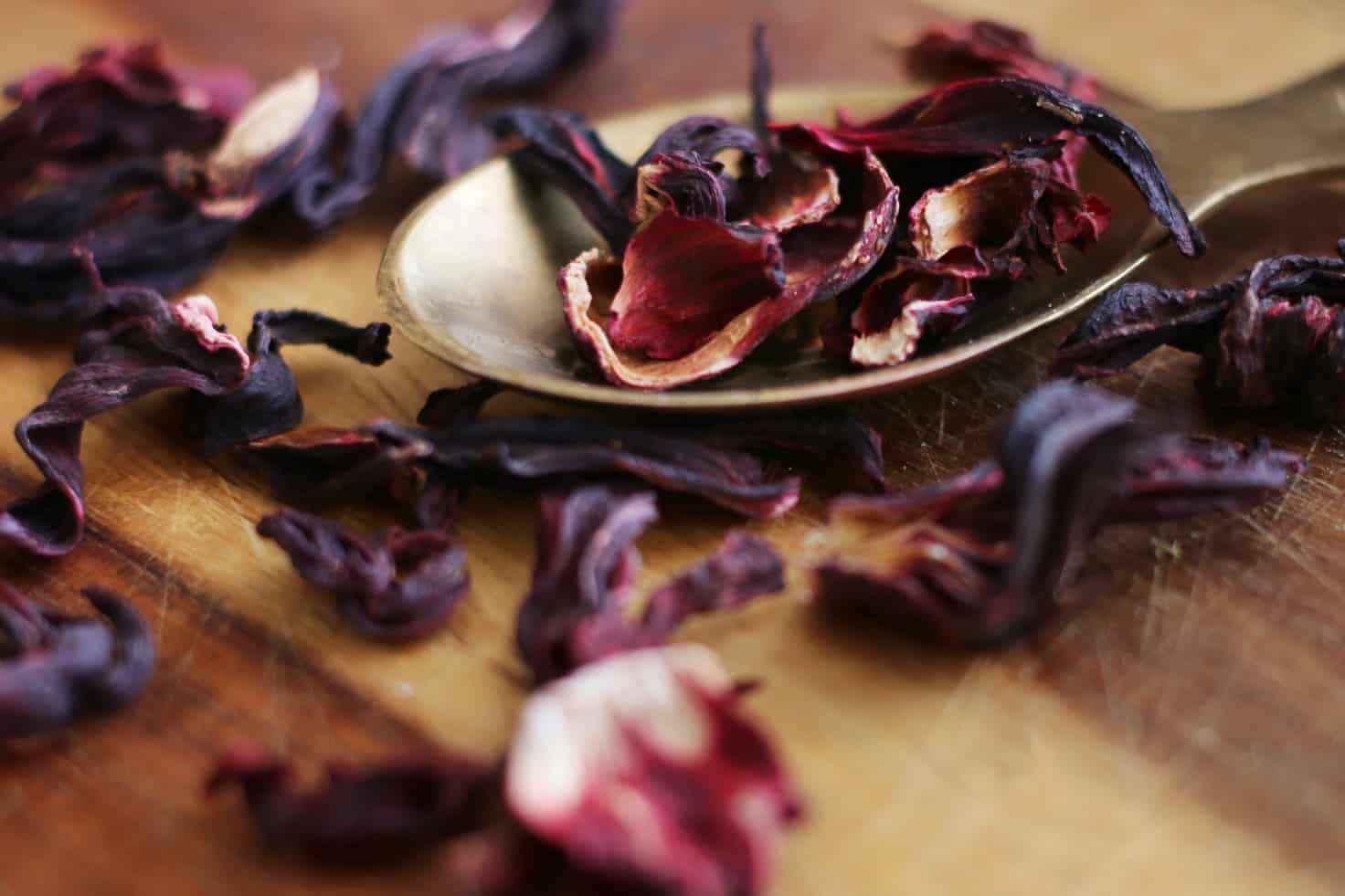

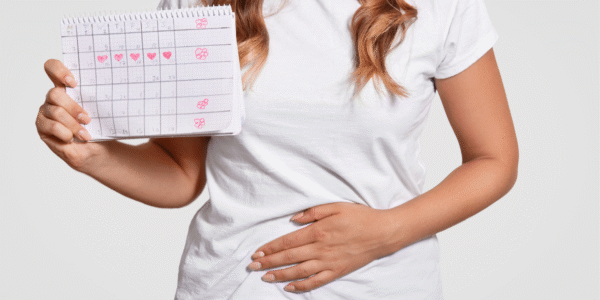
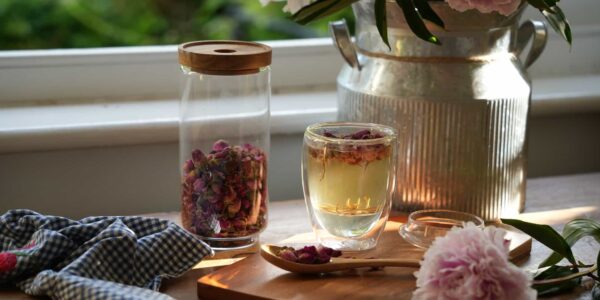

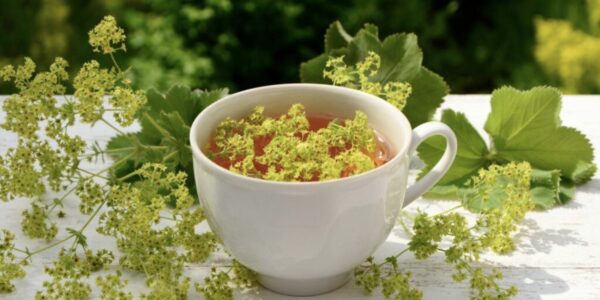
No Comments